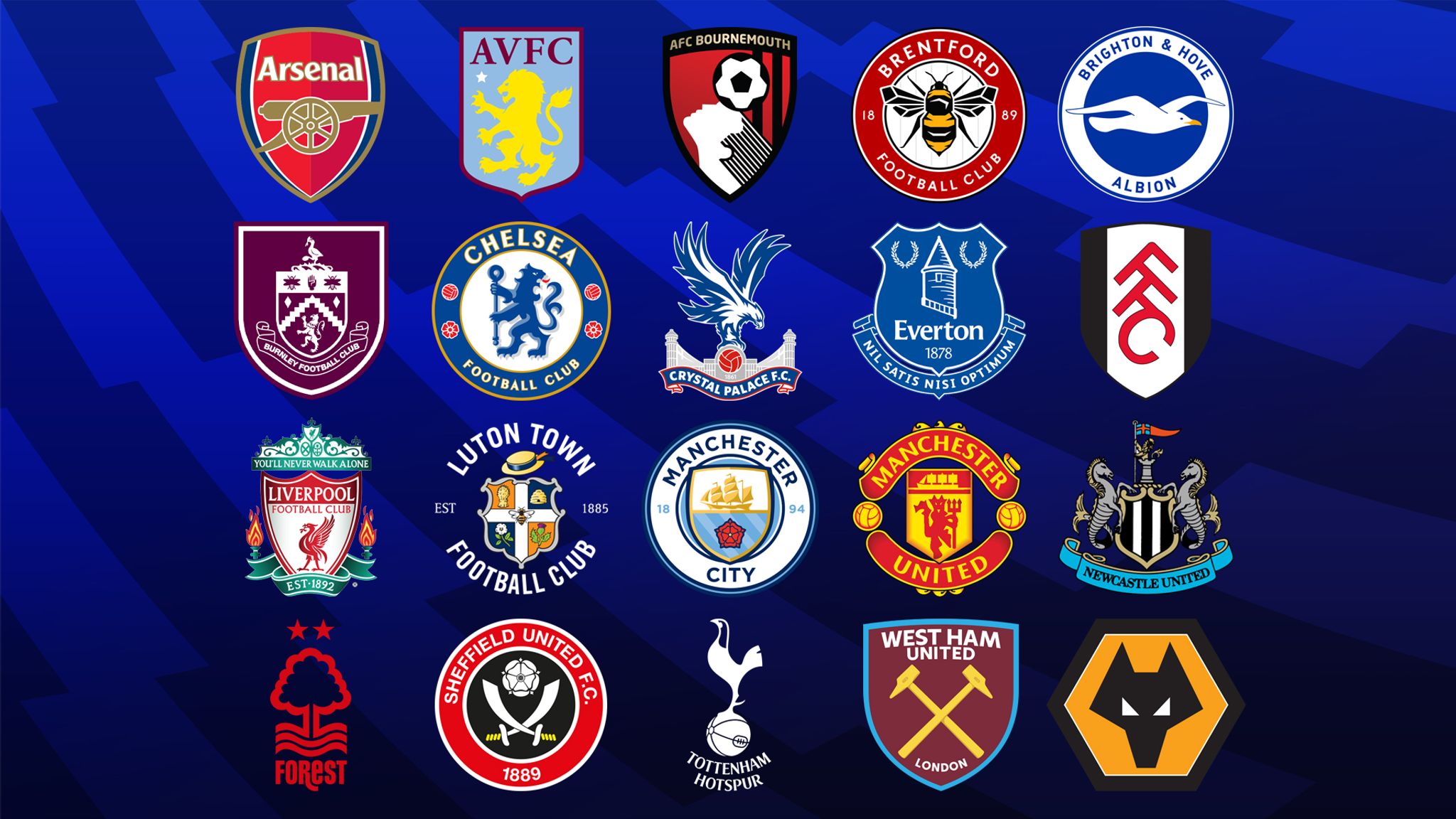Premier league 5 step process – Premier League 5-Step Process: Unlocking the secrets to Premier League success isn’t just about talent; it’s a strategic blend of astute management, rigorous scouting, and savvy marketing. This in-depth analysis dissects a five-step process designed to elevate a club’s performance, drawing on examples of successful strategies and contrasting different approaches to youth development and player recruitment. We’ll examine the crucial role of fan engagement and the impact of financial fair play and technological advancements on the league’s dynamic landscape.
From understanding the intricate structure of the Premier League, including its governing bodies and revenue distribution, to analyzing key tactical approaches used by top managers, this exploration provides a comprehensive overview. We will delve into the importance of effective scouting networks and the meticulous process of player evaluation and acquisition. Finally, we’ll consider how Premier League clubs engage with their fan base and employ innovative marketing strategies to foster loyalty and growth.
Examine how premier league 5 goals in a game can boost performance in your area.
The Premier League: A Deep Dive into Structure, Strategy, and Success: Premier League 5 Step Process
The English Premier League stands as a global football powerhouse, captivating audiences worldwide with its high-octane matches and captivating narratives. This article delves into the intricate workings of the league, examining its organizational structure, successful strategies employed by clubs, tactical approaches on the pitch, the crucial role of scouting and player recruitment, fan engagement, the impact of financial fair play and technology, and more.
We will dissect the elements that contribute to the Premier League’s enduring success and explore the challenges faced by clubs vying for dominance.
Premier League Structure and Revenue Distribution
The Premier League operates under a hierarchical structure. At its apex sits the Premier League Limited, the governing body responsible for overseeing the league’s operations, including scheduling matches, broadcasting rights, and financial regulations. Below this, the 20 member clubs form the core of the league, each independently managed but bound by the league’s rules and regulations. Revenue generation is primarily through lucrative broadcasting deals, both domestically and internationally.
Significant income also comes from commercial partnerships and matchday revenue. This revenue is then distributed among the clubs, with a formula that prioritizes competitive balance, rewarding both success on the pitch and league participation, ensuring that even smaller clubs receive a substantial share.
A 5-Step Process for Premier League Success
Achieving sustained success in the Premier League demands a multi-faceted approach. A five-step process could involve:
- Strategic Recruitment: Identifying and acquiring players who fit the club’s tactical system and long-term vision. This involves meticulous scouting and a well-defined recruitment strategy.
- Youth Development: Investing heavily in a robust youth academy to nurture homegrown talent and reduce reliance on expensive transfers. Manchester United’s academy, for example, has consistently produced top-tier players.
- Tactical Flexibility: Employing adaptable tactical approaches to counter different opponents and exploit their weaknesses. Liverpool’s success under Jürgen Klopp exemplifies this adaptability.
- Strong Team Culture: Fostering a positive and cohesive team environment where players are motivated, committed, and supportive of each other. This is vital for consistent performance.
- Data-Driven Decision Making: Utilizing advanced analytics to inform recruitment, training, and tactical strategies. Many top clubs now employ data scientists to analyze player performance and identify areas for improvement.
Different clubs adopt varied approaches to youth development. Some, like Manchester City, prioritize a more technical approach focusing on possession-based football, while others may emphasize physicality and athleticism. The optimal approach depends on the club’s overall philosophy and resources.
Analysis of Premier League Match Strategies
Three common tactical approaches in the Premier League are:
| Team | Formation | Strengths | Weaknesses |
|---|---|---|---|
| Manchester City (Example) | 4-3-3 | Fluid possession-based attack, high pressing, creative midfielders | Vulnerable to counter-attacks if possession is lost, reliance on key players |
| Liverpool (Example) | 4-3-3 | High-intensity pressing, quick transitions, clinical finishing | Can be susceptible to teams that defend deep and counter effectively |
| Chelsea (Example) | 3-4-3 | Strong defensive structure, wing-backs provide width and attacking support | Can lack creativity in the final third, dependence on individual brilliance |
The Premier League Scouting Process
Effective scouting is paramount to Premier League success. The process typically begins with identifying potential talent through extensive scouting networks, analyzing player statistics and performance data, and observing players in various matches and training sessions. This is followed by detailed background checks, negotiating with the player and their current club, and finally completing the transfer. A club’s scouting department will have a defined evaluation criteria, rating players on technical skills, physical attributes, mental strength, and character, before a final decision is made.
Fan Engagement and Marketing Strategies

Premier League clubs employ diverse strategies to engage with their fanbase. This includes interactive social media campaigns, fan forums, exclusive content, loyalty programs, and community outreach initiatives. Successful marketing campaigns often leverage the club’s history, heritage, and star players. Examples include personalized fan experiences, interactive stadium technologies, and targeted digital marketing campaigns.
- Personalized digital content
- Interactive stadium experiences
- Community engagement programs
- Exclusive merchandise and fan events
Financial Fair Play Regulations and Impact

Financial Fair Play (FFP) regulations aim to ensure financial sustainability within the Premier League. Clubs are monitored for their spending habits, and those exceeding predefined limits face sanctions. This has impacted club spending, leading to more cautious transfer strategies and a greater emphasis on youth development. The financial landscape has shifted from an era of unchecked spending to a more balanced approach, although loopholes and challenges still exist.
Impact of Technology on the Premier League, Premier league 5 step process
Technology significantly impacts the Premier League. VAR (Video Assistant Referee) has improved match accuracy by reviewing contentious decisions. Data analytics play a pivotal role in player recruitment, tactical analysis, and injury prevention. For fans, technological advancements enhance the viewing experience through high-definition broadcasts, interactive apps, and virtual reality experiences. The integration of technology continues to evolve, shaping both the on-field action and the fan experience.
Mastering the Premier League requires a multifaceted approach. This five-step process, encompassing strategic planning, talent acquisition, tactical prowess, fan engagement, and financial prudence, offers a roadmap to success. While individual circumstances may vary, the underlying principles of strong leadership, data-driven decision-making, and a deep understanding of the league’s unique dynamics remain crucial for sustained competitiveness and long-term growth in this fiercely competitive environment.
The future of the Premier League hinges on adapting to evolving technologies and maintaining a commitment to both on-field performance and off-field success.


